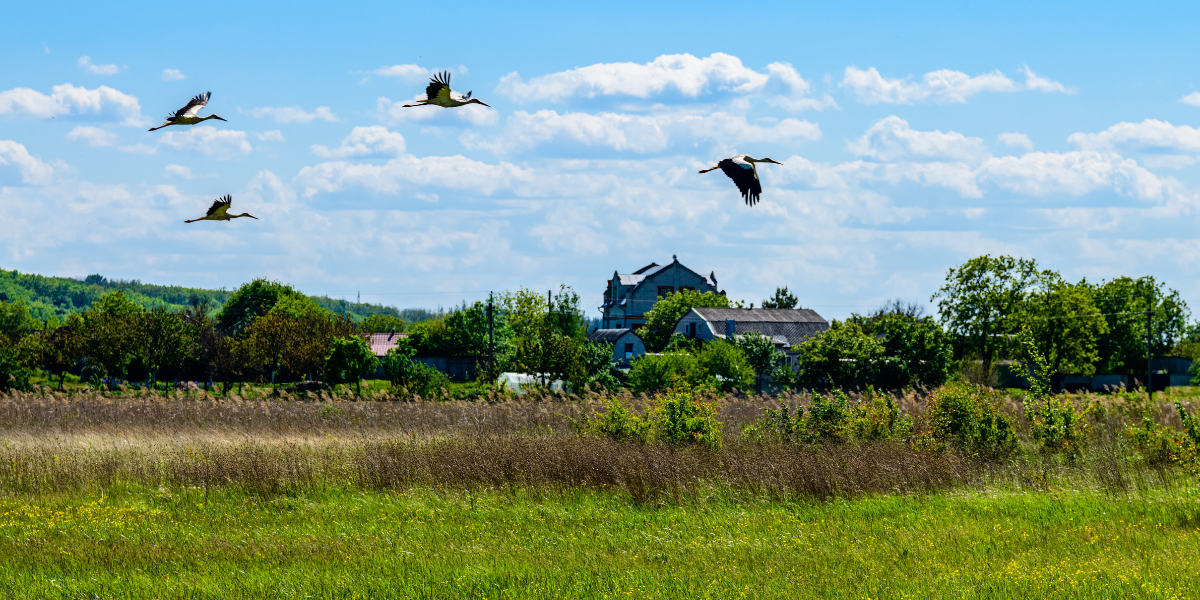Connect to Nature
- Home
- Connect to Nature

How much impact does our relationship with nature have on our health and happiness? What aspects of a person’s psychological connection to their surroundings influence their views and actions about conservation? These questions are addressed in a 2023 systematic review that was published in Biological Conservation.
The review, “Psychological and Physical Connections With Nature Improve Both Human Well-Being and Nature Conservation,” includes 16 relevant meta-analyses on these subjects. The authors were able to review the findings of 832 separate investigations because of this scope. Their summary, which emphasizes the connections between human well-being, environmental protection, and natural connectivity, is perhaps probably the most thorough one to date.
The research does have several drawbacks, though. Notably, the majority of the 832 research was conducted among people in North America (42%), Europe (28%), and Asia (25%). Only 3% of the research was conducted in Oceania and South America, and none was conducted in Africa. Additionally, adults made up about 80% of the respondents.

According to the page on biological conservation, “physical connection” refers to direct physical touch with nature, often known as nature contact. However, “psychological connection” refers to “the extent to which people see themselves as part of nature” and is quite different. Another common term for it is “human–nature connectedness” (HNC).
As may be predicted, the comprehensive study shows that exposure to nature improves people’s health and well-being. The 832 studies covered a wide range of physical connections, including gardening, outdoor activities, mindfulness-based environmental therapies, and natural noises. For people who are interested in improving their health, the report notes that nature-based mindfulness and “natural sounds with a higher species richness” produced the highest subjective well-being.
Maybe it should come as no surprise that exposure to the outdoors enhances human well-being. We are all aware of the benefits that exercise, sunshine, and fresh air provide for physical health. Additionally, it has long been demonstrated that spending time in green and blue environments enhances mental health by, for instance, reducing stress and negative emotions and improving mood and cognitive function. Nature therapy, often known as eco-therapy, is based on these insights. Importantly, wellbeing in the hedonic (pleasure) and eudaimonic (meaning) domains is linked to positive nature connectedness/relatedness, or one’s subjective feeling of relationship with the natural world.
But why else is it vital to see nature firsthand? Because doing so makes a person’s psychological connection to their surroundings stronger. This indicates that people are more inclined to see themselves as a part of the larger natural whole, by the authors’ previously stated notion of psychological link.
Relatedly, the attitudes and perceptions that support conservation efforts have undergone several paradigm shifts (and overlaps) in industrialized, Westernized nations throughout the past 60 years or more.
These four frameworks are covered in Georgina Mace’s 2014 article “Whose conservation?”
It is contested whether the most recent trend is anthropocentric—valuing nature for the advantages it offers humans—or ecocentric/biospheric—valuing nature for its own sake. It probably doesn’t matter as much in either scenario. One may argue that “anthropocentrism can and should be a powerful motivation for environmental protection since ecosystems constitute the ‘life-support system’ for humans.” It is still in the best interests of the individual to preserve their ecosystem, even if their worldview is anthropocentric rather than ecocentric.

The health benefits of being in nature are complemented by other perks. One significant one, as noted in the 2023 review, is that pro-conservation attitudes and behaviors are influenced by an individual’s psychological sense of belonging to nature. Pro-environmental behavior, including self-reports, behavioral intentions, and observed behavior, is “strongly and robustly” correlated with nature’s nature-relatedness connection. For example, volunteering for conservation has a favorable correlation with nature-relatedness.
Additionally, this article from 2022 on the human “experience of nature” (EoN) shows how these encounters influence “human values and attitudes by reinforcing individuals’ psychological and emotional connection with nature.” The most pro-conservation behaviors and stronger environmental identities are typically displayed by those with the highest EoN levels.
Regretfully, studies also indicate a global decline in human EoN. The phenomenon is also known by the name “extinction of experience.” Loss of orientation, or people’s diminished desire to interact with the environment and their ensuing loss of emotional affinity with it, along with loss of opportunity, as demonstrated by widespread urbanization, decreasing greenery in metropolitan areas, and deforestation, is likely the reason for lower EoN.
The systemic evaluation made the following recommendations to counteract these trends:
In general, societies will be able to meet their sustainability goals if they comprehend and take action on the connections between natural interaction, psychological linkages to the environment, and pro-conservation attitudes and behaviors. The benefits of nature-relatedness for welfare, society, and the environment have already garnered a lot of attention in the field of public policy as well as in the study literature from several disciplines.





Copyright © 2024 Market Cloud, All rights reserved. Made with ❤ by Brand Mindz.